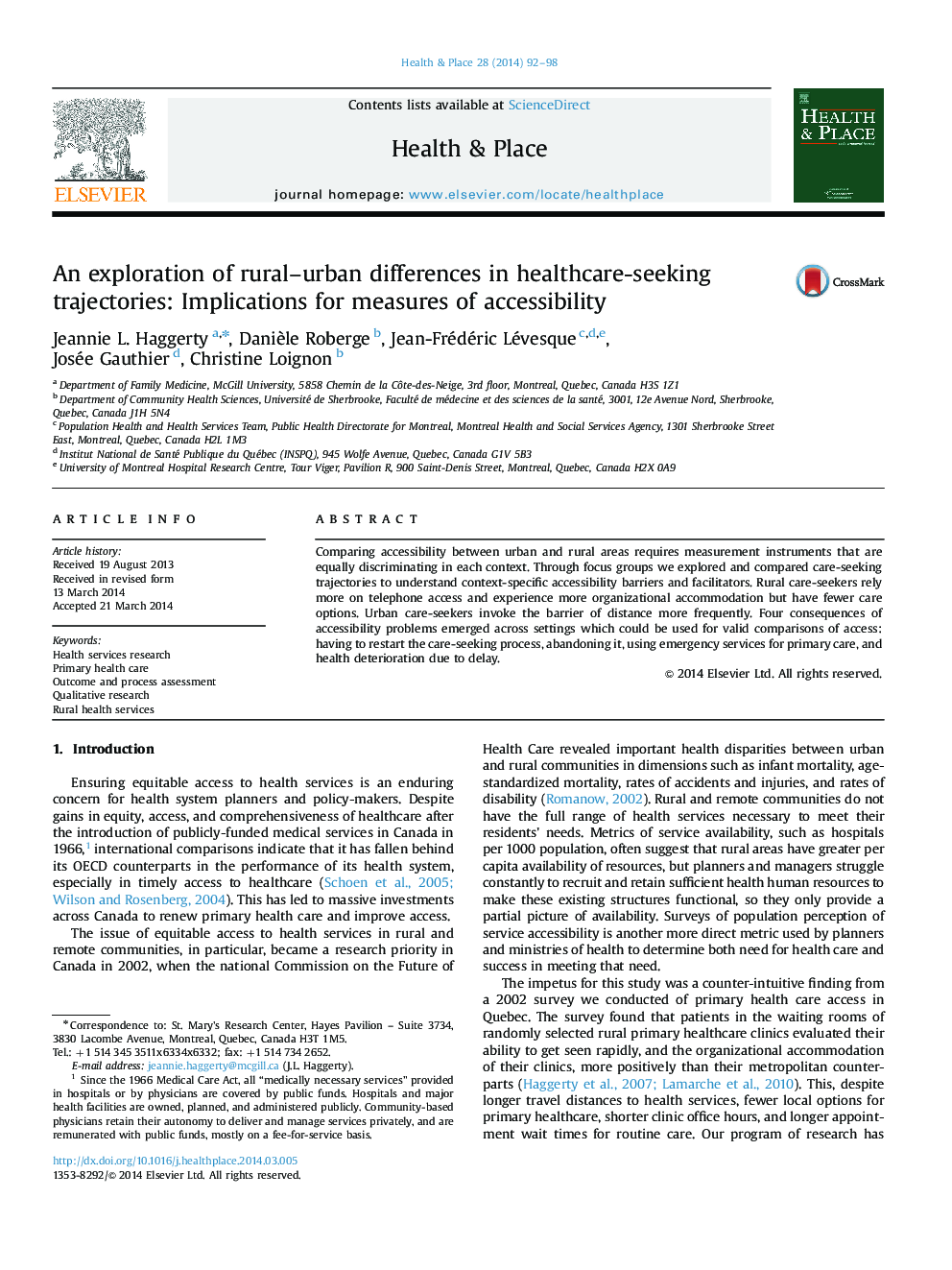| Article ID | Journal | Published Year | Pages | File Type |
|---|---|---|---|---|
| 7458582 | Health & Place | 2014 | 7 Pages |
Abstract
Comparing accessibility between urban and rural areas requires measurement instruments that are equally discriminating in each context. Through focus groups we explored and compared care-seeking trajectories to understand context-specific accessibility barriers and facilitators. Rural care-seekers rely more on telephone access and experience more organizational accommodation but have fewer care options. Urban care-seekers invoke the barrier of distance more frequently. Four consequences of accessibility problems emerged across settings which could be used for valid comparisons of access: having to restart the care-seeking process, abandoning it, using emergency services for primary care, and health deterioration due to delay.
Keywords
Related Topics
Health Sciences
Medicine and Dentistry
Public Health and Health Policy
Authors
Jeannie L. Haggerty, Danièle Roberge, Jean-Frédéric Lévesque, Josée Gauthier, Christine Loignon,
